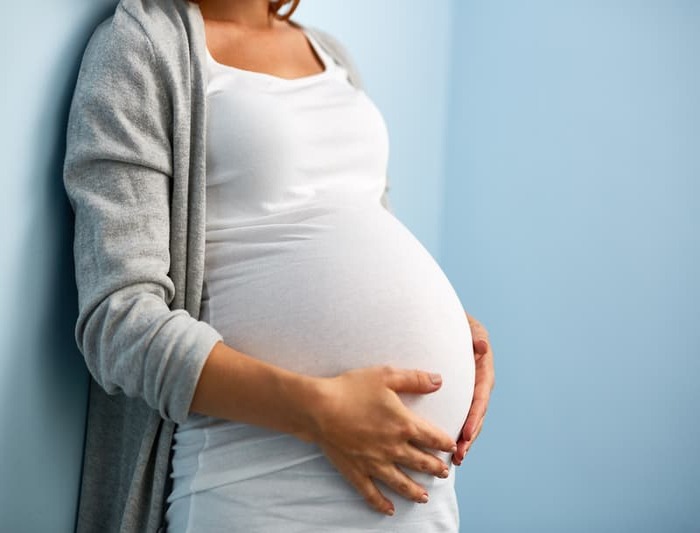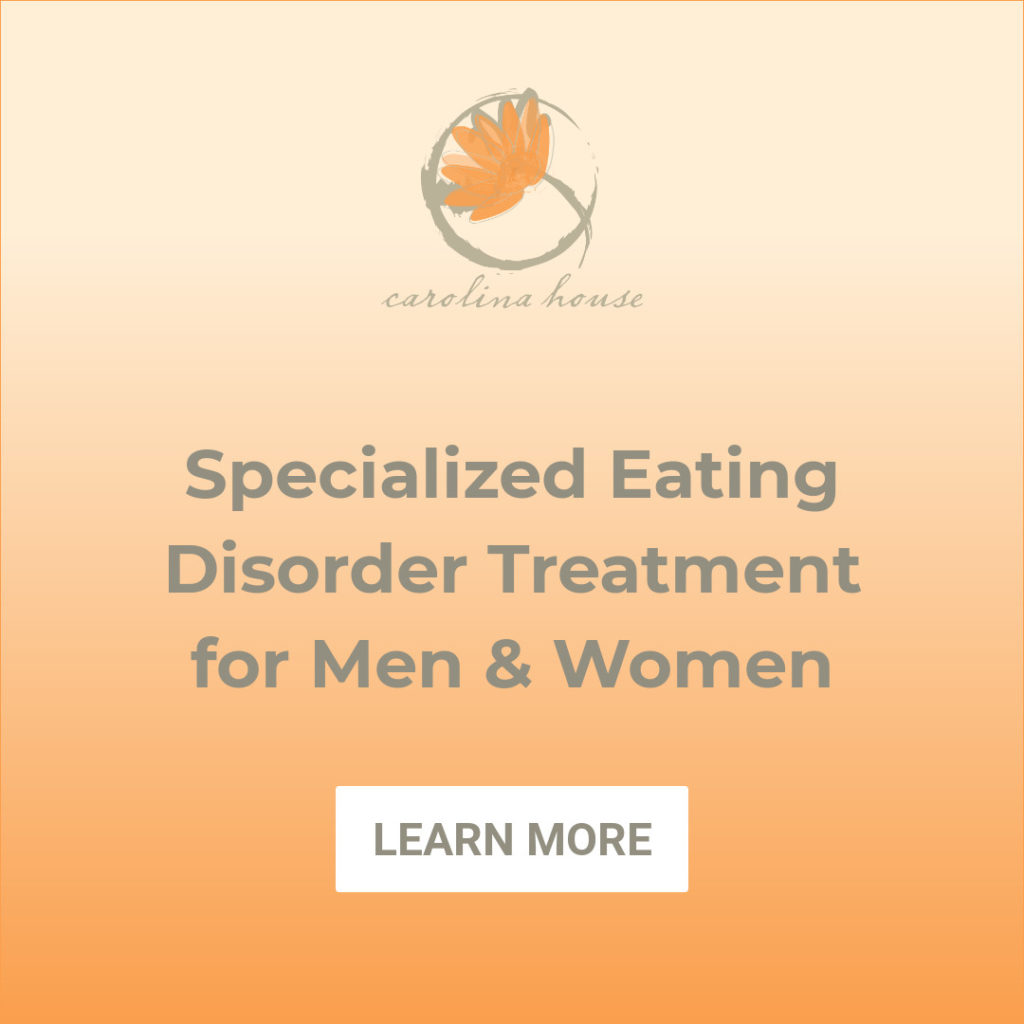- Calls to this hotline are currently being directed to Within Health or Eating Disorder Solutions
- Representatives are standing by 24/7 to help answer your questions
- All calls are confidential and HIPAA compliant
- There is no obligation or cost to call
- Eating Disorder Hope does not receive any commissions or fees dependent upon which provider you select
- Additional treatment providers are located on our directory or samhsa.gov
How to Love Your Body If You’re Struggling with Body Image During Pregnancy

Contributor: Staff at Carolina House
It can be tough for women to love the way they look when they’re pregnant. Their bodies change fast and in ways they can’t always control, and that can bring up all sorts of body image concerns.
So, how can a woman love her body if she’s struggling with body image during pregnancy?
It’s About How You Feel
Body image isn’t about the way a woman actually looks. It’s about how they feel when they look in the mirror or when they think about the way they look [1].
During pregnancy, there are many factors that can influence how a woman feels about her body:
- Unsolicited comments: Remarks about a woman’s weight or other changes to her body during pregnancy can make her feel ashamed or unattractive, and she might worry about how she looks because of what people are saying.
- Constant weight checks: Pregnancy might be the first time a woman has to be regularly weighed and evaluated by a doctor, and this can put intense focus on how her body is changing.
- Worry about her postpartum body: Many women feel intensely worried about how they’ll look after giving birth, and these concerns can begin at any time during their pregnancy. Some women may change how they eat or move to prevent what they perceive to be too much weight gain.
When so many stressors burden a woman during pregnancy, it can be difficult for her to feel good about how she looks, and that can negatively affect her mental health. But when a woman feels good about herself, it can make a major difference in her experience with pregnancy and childbirth.
“A woman who feels good about herself will celebrate the changes that her body experiences during pregnancy, look forward to the challenge of giving birth, and willingly accept the physical and emotional changes of the postpartum period,” Ann Douglas, author of The Unofficial Guide to Having a Baby, told the American Pregnancy Association [2].
Battling Unrealistic Expectations
But celebrating the changes that come with pregnancy can be hard when it seems like you’re the only one going through them. The media and celebrities still glamorize pregnancy, photoshopping away any stretch marks or blemishes to hide the authentic experience.
For many women, seeing pregnancy and the postpartum period depicted in ways that are unattainable for the average woman can be demoralizing. In a small study of 50 pregnant women, researchers showed participants images of celebrities who were well-toned mere weeks after giving birth. Nearly half of the participants said that the images were unrealistic and made them feel self-conscious, depressed, frustrated, and hopeless about what their postpartum bodies would look like [3].
And it’s no wonder the study participants felt that way. The average person doesn’t have professional makeup artists, photographers, chefs, and personal trainers to help them look like those celebrities did during their own pregnancies or postpartum periods.
Call for Help 844-485-6232
But celebrities and the media aren’t the only ones setting these unrealistic expectations for women’s bodies during or shortly after pregnancy. Women are sharing their own baby bump photos on social media, and many are using photo-editing tools to make their photos picture-perfect — a practice that can be harmful for someone who is already feeling emotionally vulnerable.
A questionnaire of nearly 300 pregnant women found that those who had a Facebook account had more body image concerns than those who did not have a Facebook account, and those who used Facebook were much more likely to struggle with body dissatisfaction, specifically with how their bodies would look after giving birth. Women who used Facebook also said that they frequently compared their bodies with those of other pregnant women [4].
From magazines to social media, women are surrounded by unrealistic images of how they should look while pregnant or after childbirth, and that can dampen the joy they should be feeling from this experience.
Loving Your Body
When you feel bombarded by messages telling you that you aren’t good enough, loving your body during pregnancy can seem like a tall order. But there are lots of ways to channel body love during this time in your life:
- Talk to friends and family – Having a strong support system can make a huge difference for your emotional health. In fact, a study of nearly 400 women, which included about 150 pregnant women, found that women who had supportive family and friends were less likely to struggle with body image concerns [5].
- Educate yourself – Learning about how your body will change throughout your pregnancy can show you what to expect and help you recognize what images are actually realistic.
- Focus on what your body is doing – It can be easy to forget why your body is changing throughout your pregnancy, but remind yourself that you’re helping your baby grow and develop.
- Reach out for help – Body image concerns can lead to serious conditions such as an eating disorder or depression, so reach out for professional help if you’re struggling.
Having a positive body image can be challenging at any point in a person’s life, but it can be even harder when adding the changes that come with pregnancy. With the appropriate support and resources, a woman can love her body at any stage of her life.
References
[1] National Eating Disorders Association. (2021). Body image. Retrieved from: https://www.nationaleatingdisorders.org/body-image-0. [2] American Pregnancy Association. (N.D.). Body image: Loving your body before, during, and after your pregnancy. Retrieved from: https://americanpregnancy.org/healthy-pregnancy/pregnancy-health-wellness/body-image-during-pregnancy/. [3] University of Illinois at Urbana-Champaign. (2017, August 7). “Media portrayals of pregnant women, new moms unrealistic.” ScienceDaily. Retrieved from: www.sciencedaily.com/releases/2017/08/170807152604.htm. [4] S. Hicks & A. Brown. (2016, June). Higher Facebook use predicts greater body image dissatisfaction during pregnancy: The role of self-comparison, Midwifery, 40, 132-140, DOI: https://doi.org/10.1016/j.midw.2016.06.018. [5] Małgorzata, P., Marcin, R., Michał, L., Grymowicz, M., Wojciech, P., Kasperowicz, A., Kucharski, M., Przybył, M., Smolarczyk, R. (2021). Body image during pregnancy in the era of coronavirus disease 2019: the role of heterogeneous patterns of perceived social support. Frontiers in Psychology. 12, 4373. DOI=10.3389.About Carolina House
 Carolina House is an eating disorder treatment center that serves people age 17 and older of all genders. Within our residential and outpatient programs, we offer a range of services, such as LGBTQ- and male-inclusive programming, to help individuals who are struggling with eating disorders and co-occurring mental health conditions. Our treatment connects individuals with the care they need to achieve long-term recovery from eating disorders and other mental health concerns.
Carolina House is an eating disorder treatment center that serves people age 17 and older of all genders. Within our residential and outpatient programs, we offer a range of services, such as LGBTQ- and male-inclusive programming, to help individuals who are struggling with eating disorders and co-occurring mental health conditions. Our treatment connects individuals with the care they need to achieve long-term recovery from eating disorders and other mental health concerns.
The opinions and views of our guest contributors are shared to provide a broad perspective of eating disorders. These are not necessarily the views of Eating Disorder Hope, but an effort to offer a discussion of various issues by different concerned individuals.
We at Eating Disorder Hope understand that eating disorders result from a combination of environmental and genetic factors. If you or a loved one are suffering from an eating disorder, please know that there is hope for you, and seek immediate professional help.
Published on December 15th, 2021. Published on EatingDisorderHope.com
Reviewed & Approved on December 15th, 2021, by Jacquelyn Ekern, MS, LPC

